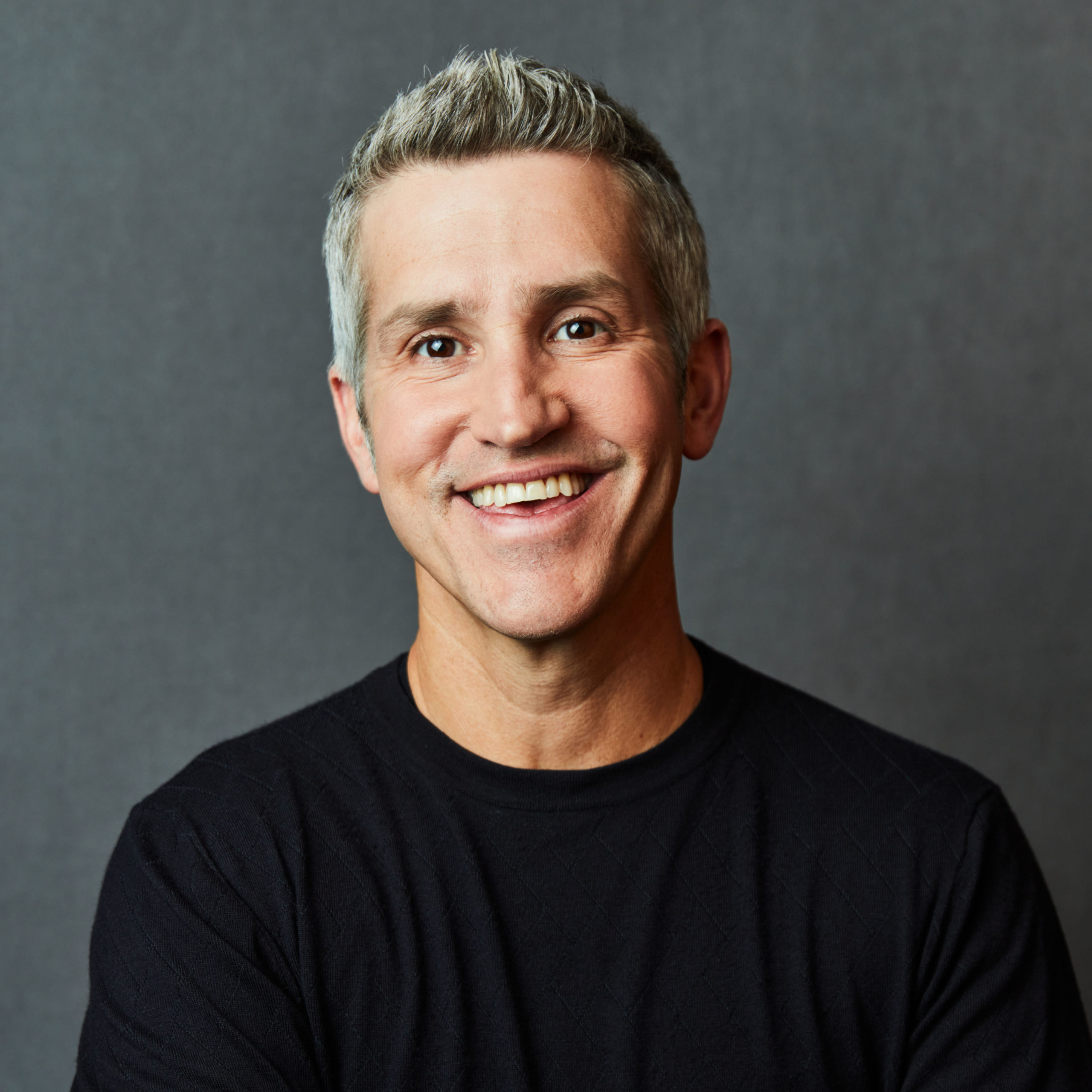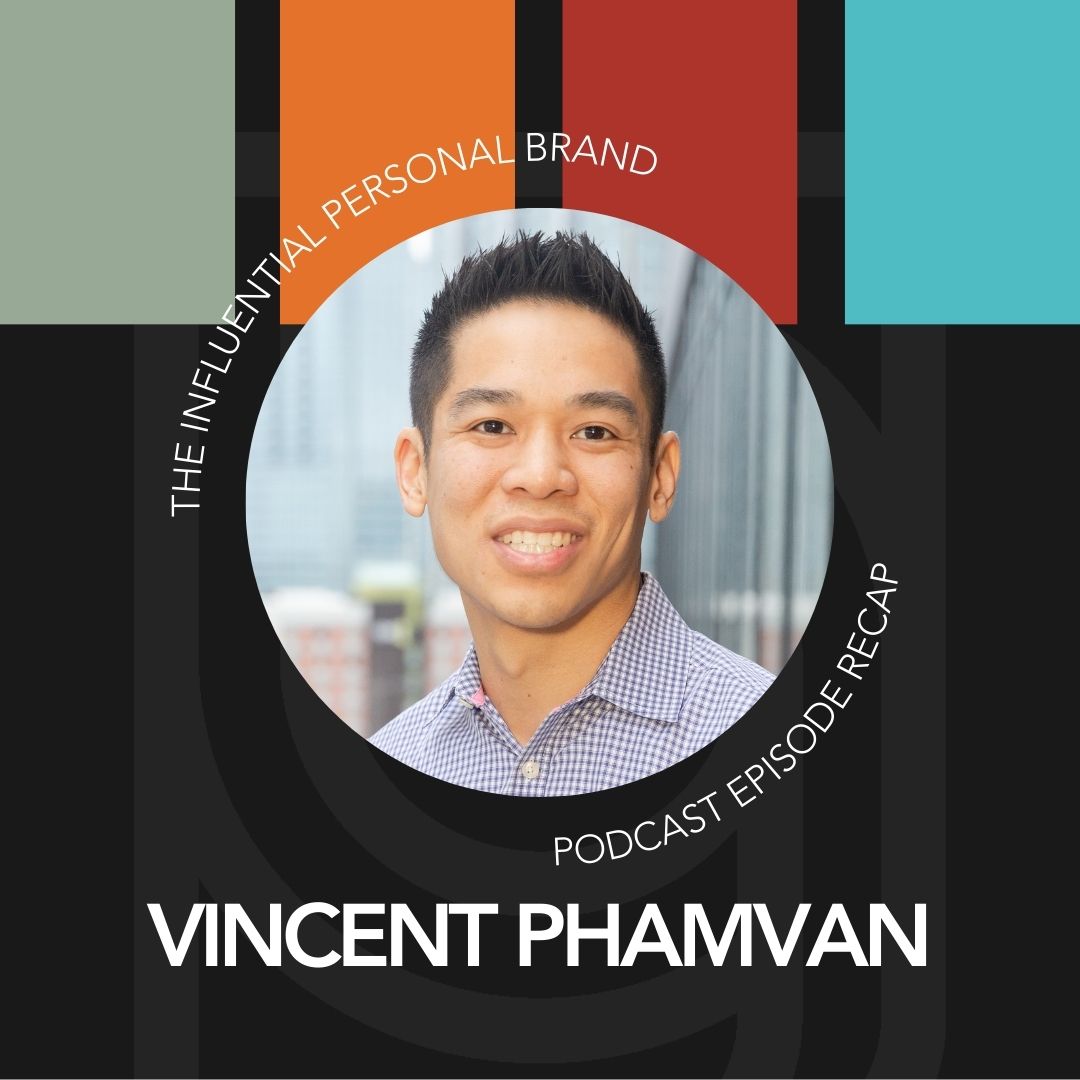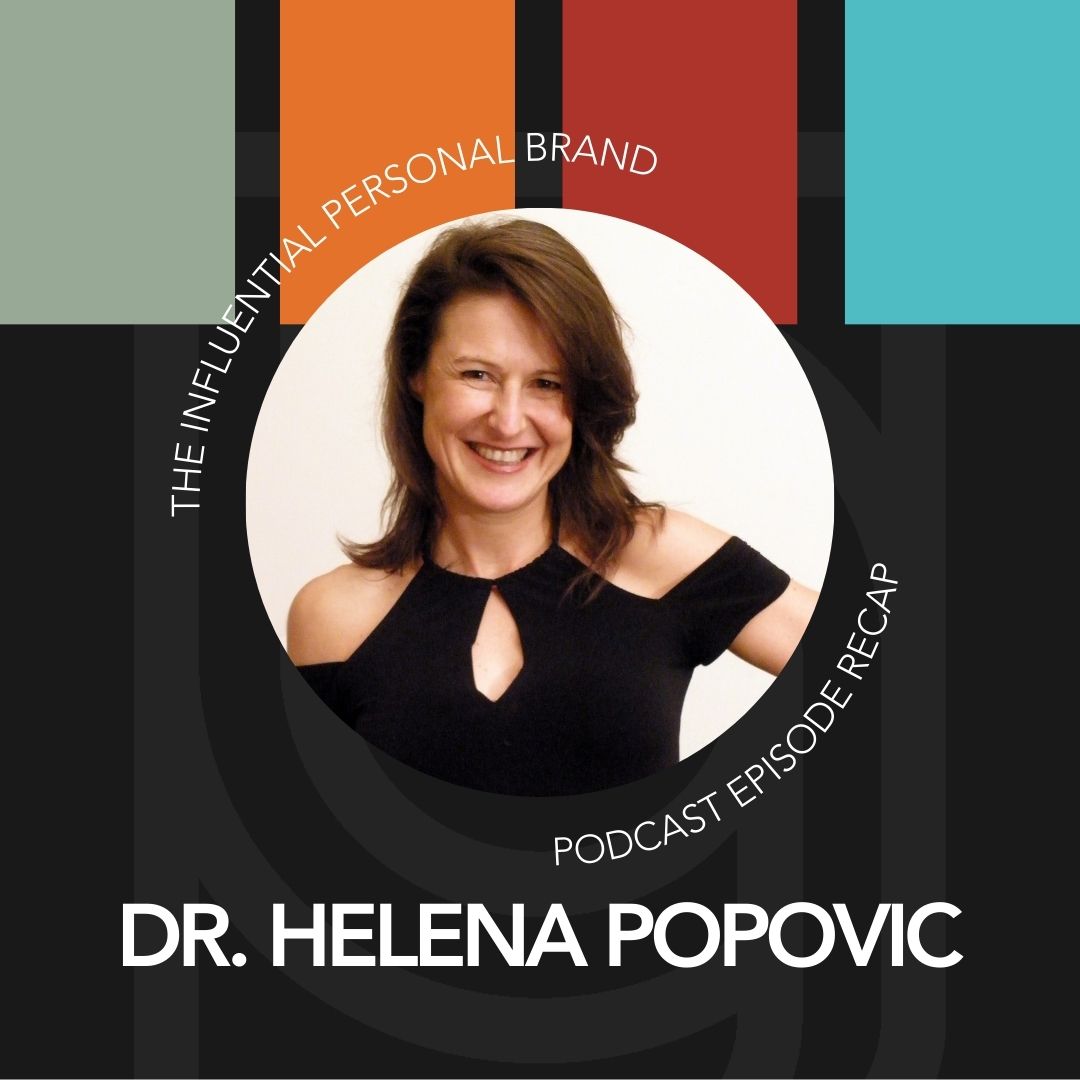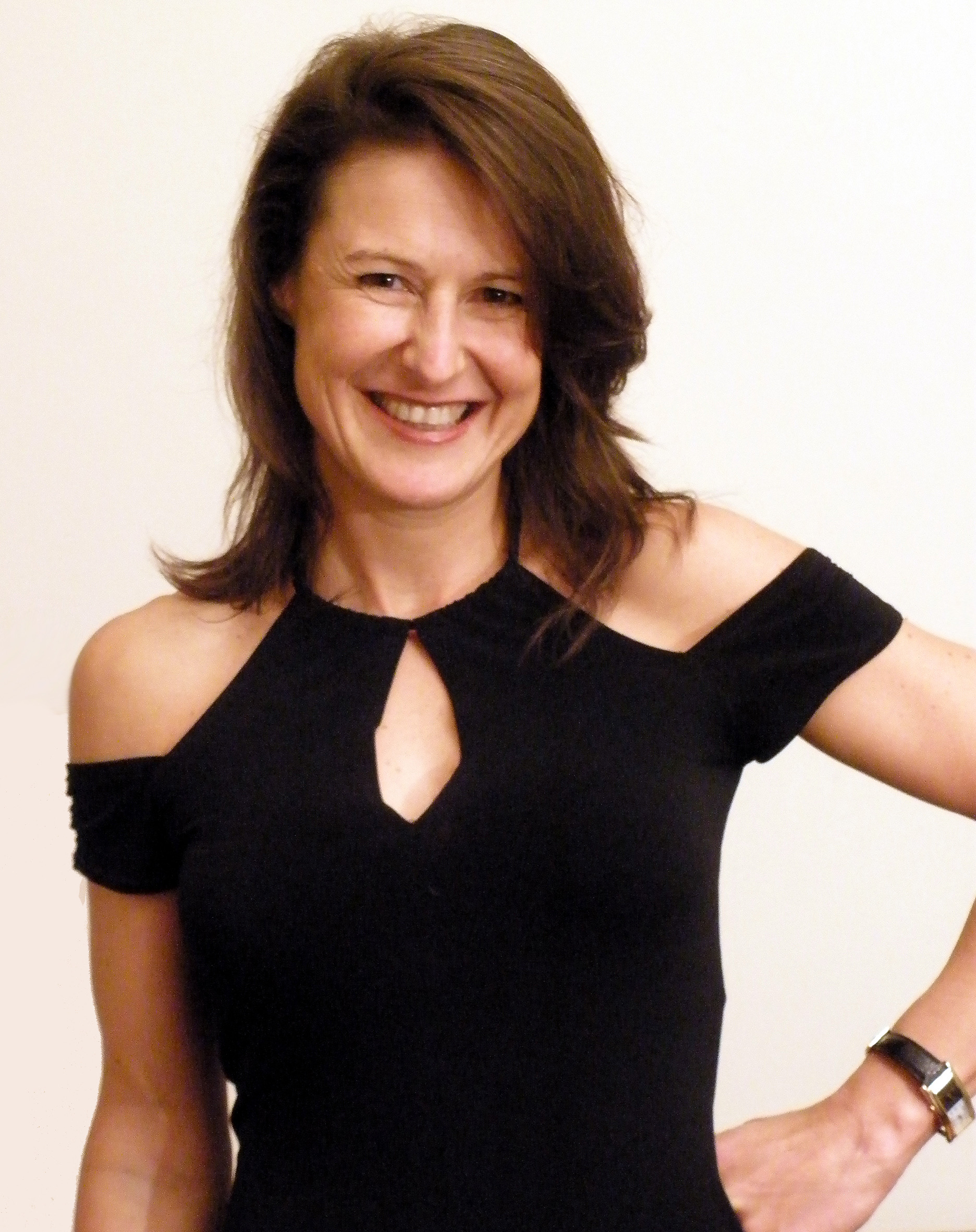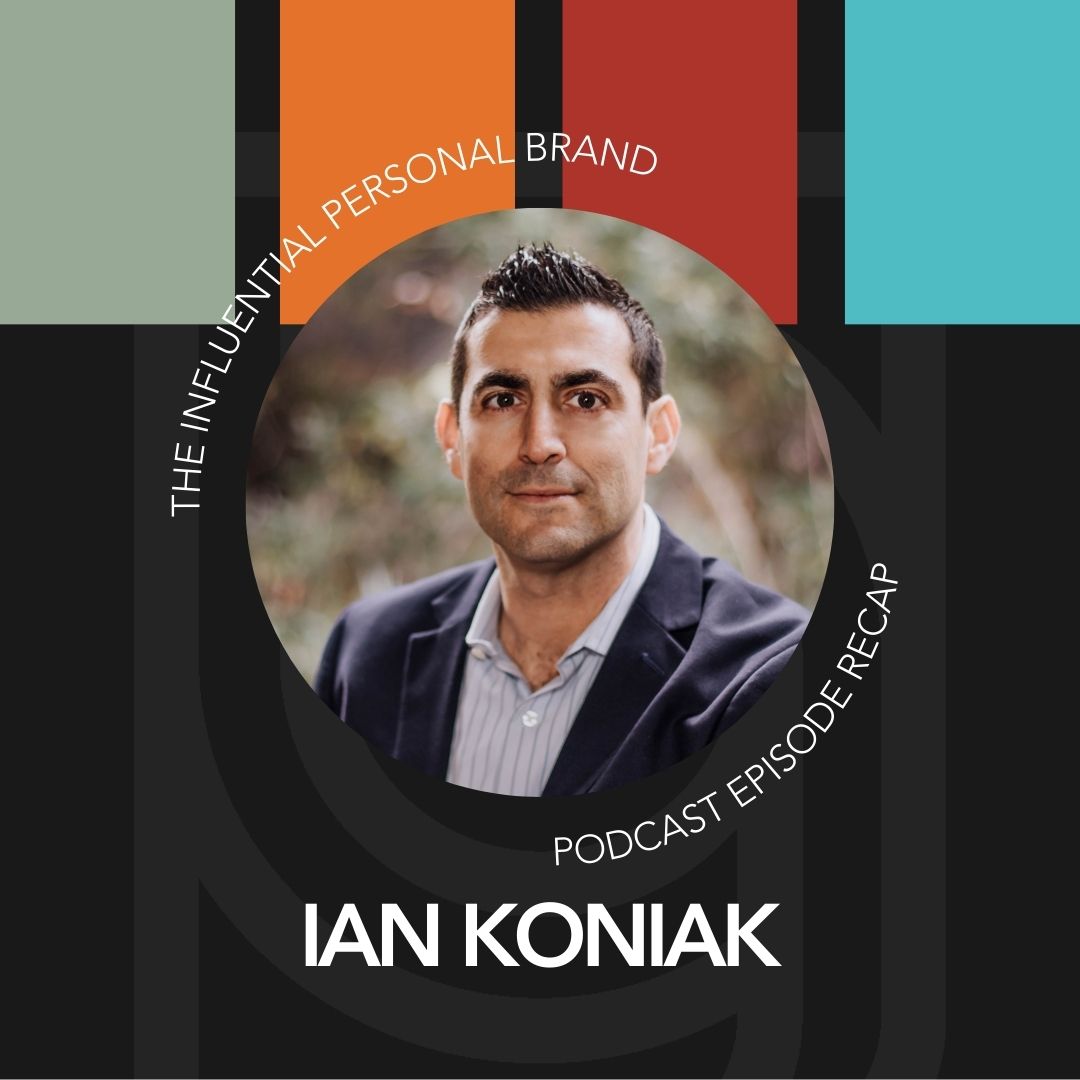RV: (00:08)
Hey brand builder, Rory Vaden here. Thank you so much for tuning in to listen to this interview. We are so excited to bring you this information and wanted to let you know that, Hey, there’s no sales pitch coming. From anything that we do with this is all our value add to you and the community. However, if you are somebody who is looking for specific strategies on how to build and monetize your personal brand, we would love to talk to you and we offer a free call to everyone that’s interested in getting to know us and is willing to give us a chance to get to know them and share a little bit about what we do. So if you’re interested in taking us up on a free strategy call, you can do that at brand builders, group.com/summit. Call brand builders, group.com/summit. Call, hope to talk to you soon on with the show.
RV: (01:04)
Well, yeah, every so often I got to get together with my pal, Acuff, John Acuff, and tell you what he’s up to and glean some wisdom from him. If you don’t know who he is, he’s the New York times bestselling author of seven books. His last book was a number one wall street journal bestseller called finish. Give yourself the gift of done. He’s incredible speaker. He’s freaking hilarious. He’s been doing a lot of research lately and conducting studies and just really fascinating. We’ll hear about that as related to goals and specifically today about overthinking, but he speaks for big companies, FedEx Nissan Chick-Filet he’s got well over half a million people following him on social and we’ve just been friends for years. He lives here in Nashville. And so we have known each other for a while and he’s got a new book that is coming out called soundtracks, the surprising solution to overthinking.
RV: (02:07)
And so we’re going to talk about what that is and specifically some of the mindset issues that need to be resolved to really build and grow and become an influential personal brand like Mr. Aycock. So John brother, welcome back. Yeah. Thanks for having me again, Roy. It’s always fun to see you. Yeah, man. So so tell me about soundtracks. What, what is this all about? Where did this come from? I know that you’ve been really diving into some of the data and some of the research here in the last few years. And so I’m guessing this is connected to that.
JA: (02:45)
Yeah. So I would say if you’re a personal brand and you’re going to launch a book, you’re going to do a product you’re going to do any sort of new endeavor. There’s three things to look for. That’s kind of my Venn diagram. The first thing is you look for a personal connection. Do I have a personal connection to this content? Second thing is, is there a real need in the marketplace? Can I identify a need? The third is, is there a hole in the market for me to put it into? So for me I’ve always been an overthinker. I learned some things about my thoughts and that I got to choose them in 2008 and it kind of launched my speaking career. And so I’d been working on choosing my thoughts, which turned into my actions, which turn into results for a long time.
JA: (03:28)
And then I said, okay, but I wonder if other people need that, are there other overthinkers? And so I have a PhD named Mike Peasley who helps me with research and we asked 10,000 people if they struggle with overthinking and 99.5% of them said yes. So I knew there was a need. And then I went to the marketplace and there’s some great books about overthinking, but a lot of them say, stop it, stop it, stop it. And my opinion was, why would I ever turn off this amazing machine? What if I just said it with good things were thoughts that pushed me forward up thoughts that pushed me back. And so that for me was the Venn diagram where I said, okay, I’m willing to invest a few years of my life into this idea. And I think it’s going to reach a lot of people and I’m deeply connected to it. So let me spend the time. That’s kind of the Genesis of why I decided to write about overthinking.
RV: (04:16)
So when you say overthinking, is that the same as saying, we’re thinking limiting thoughts about ourselves. Like we’re, we’re, we’re dealing with self doubt and insecurity and there’s like, like when you say soundtrack is like the metaphor here, is it the, it is the negative kind of tape rolling in our mind is that’s what we’re talking about.
JA: (04:41)
It can be at a hundred percent. Can be. I mean that, you know, one of the things we say is that in all the research, cause we took thousands of people through this. Like that for me has been the evolution as a personal brand, you know, early books. I didn’t understand the research side of things. Now I have ideas in this office, but if I send them out of this office, you know, who they help John ACOF, you can only, it’s a very narrow focus. But if I take all these ideas and I have the generous thousands of readers who go we’ll test those for a month, we’ll give you feedback. We’ll then I have 35 different stories where a stay-at-home mom, a CEO, you know, a college student can go, Oh, I see myself in that book because I’ve tested the ideas with other people.
JA: (05:22)
And so for me, one of the things we said was we never found somebody who’s problem was they over-thought compliments. We never found somebody. Who’s like, I just keep overthinking what a good mom I am. And it’s really causing problems in my life. But on a broader sense, I define overthinking as when, what you think gets in the way of what you want. And the difference between overthinking and being prepared. Cause that’s great. Natural pushback. Okay. Well maybe I’ll just prepare it. I like to be analytical. Being prepared, always leads to action. Overthinking always leads to overthinking. It always just leads to more thinking. So be, be analytical, just look okay, does this turn into action? If it doesn’t, you might be stuck in an overthinking loop. I call that a soundtrack, which is this, you know, kind of repetitive thought that you hear again and again
RV: (06:10)
And again say, and you say that again. You said being prepared, always leads to action, but overthinking just leads to more thinking
JA: (06:19)
Some more overthinking. Yeah. That’s the difference. So if you said to me, you know, as somebody who writes books, people come up to me and go, Oh, I’ve always wanted to write a book. I’ve been working on one for 10 years. I know that that’s too long. Like I know, you know that you’re, there’s the chance you’re overthinking that. Where if you say I’m working on a book, I’ve already finished four chapters, I’ve already submitted to the publisher. Like I can see actions. And so the goal of the book is to help you get new thoughts that lead to new actions that generate new results. And most people don’t understand that they get to choose what they think about. They think I thought of something. They have not something they hone. And what I, what I try to teach is your thoughts are going to come by choice or chance and choices so much better.
RV: (07:04)
So as it, as you apply this to personal brands and specifically yourself, you’ve built a huge social media following, you have launched New York times bestselling books, you have this great speaking career. What are some of the evolutions of like the soundtracks that you’ve had to battle in your own mind related to those different things? Or is there a certain part of your business that you’ve really struggled with it? Or is there like, if, is, has it been like a series of, you know, I had to overcome this hurdle and then this hurdle and this hurdle, and like talk to us about your evolution as a personal brand, as it relates to the evolution of the soundtracks you’ve had to like rewrite in your own head.
JA: (07:54)
Sure. Well, I mean, where I first discovered that it was powerful, impossible was 2008. I get an email from an event planner. Who’s been reading a blog. I had and said, Hey, would you come speak at our event? I’d never spoken professionally before. I didn’t even know that was a thing. I didn’t know. People got paid for it. I didn’t know how to do it. All I had was a thought, I had a new soundtrack that said, I think you can do this. I think I can do this. And then I, I threw overwhelming action at it. I worked on it. I did repetitions. I worked on it and it changed my life. Like the start of that thought was the start of me moving to Nashville was the start of writing. New York times. Best sellers was to start getting a speaker on the world.
JA: (08:33)
All I had no other evidence except for that thought. So that’s an example of where it worked well for me, where I said, okay, I’m going to listen to this soundtrack. I’m I’m going to make it true through action. And I’m going to see the results I get through that one that’s been more challenging is I’ve got a note right on my wall right here. I’ll pull it off. And all it says is ask for more. And I wrote that on 27th, 2020, because I found myself in negotiations, undervaluing my work. That’s something that every personal brand struggles with the idea of like, what do I price it as? I don’t want to price it as too much I don’t want to. And so I just, I needed those words. They’re not sexy. They’re not that, I mean, they’re not that catchy, but I needed to see ask for more because I found myself listening to a broken soundtrack, who are you to charge that amount of money?
JA: (09:19)
Who are you to give that advice? Who are you? And I think that’s something that every personal brand struggles with. So for me, when it came to specifically money, I needed to say, okay, remember, ask for more, remember, ask for more value. What you do remember ask for more, even if it takes, you know, people have said that before, like, even if it takes you an hour, they’re paying you for the 10 years of expertise. They’re not paying for you for the hour. So change that soundtrack. So yeah, I would say there’s been, for me, it’s been a process. And every time I find a new one, I go, okay, what, what do I want to do with that broken soundtrack? How am I going to change that? How am I going to use a new one to push me forward into my business?
RV: (10:00)
And is that, so that’s a great example. So negotiating fees, or just what you’re pricing, your various offerings that have there been any others in the journey that we’re like along the way that were big ones or as it just kind of been more like a series of small ones.
JA: (10:17)
I mean, it’s been like they come in all shapes and sizes and that’s the fun thing is a soundtrack can be a song lyric. It can be a question from a friend. It can be a paragraph you read in a book. It’s not that you have to sit down and come up with the next, just do it. Don’t put that pressure on yourself. So for me, another one that I recognized fairly big one was when I show up at a speaking event, I’m there to serve the client. Not there to look like a rockstar. I want the event planner to win. I want the CEO to look good. I want the audience to win. And that service switch changed everything. Because now I get to say to the event planner, I’m here for 45 minutes. You’re here all year. How do I make you look like a rockstar?
JA: (10:58)
What have I done that? My goal is you’re getting texts during my speech from your CEO that says, this is exactly the kind of keynote we were looking for. Thank you so much for that. And that mindset changes how you serve on the front end. Now I’m, you know, I’m having a pre-call interview where I’m really digging in and going, what are the needs? What are the challenges? How do I serve them? Versus I have a keynote. I want John AKF to look a certain way. I want to get X amount of applause. Like that’s not what I’m trying to do. And that changed my business because then an event planner goes, okay, this is like, we’re working together. Like this is somebody who’s on my side. This is somebody who’s going to be easy to work with. I want to book them again. I want to recommend them other people. So that’s another example of a, a big one for me that I would say, okay, that changed how I look at, you know every event I speak out.
RV: (11:47)
Yeah. I love that. I I think that is so cool that it’s healthy for your, for your mindset. And it is a massive driver for the business, right? For them, the moment they think of you as like their partner versus like a piece like a, it’s like a speaker as a table setting. It’s like a task on a checklist that you check off when you’re planning a meeting. Like you have to deal with this thing. But once you kind of come on that side of like, this is a partner, this is my asset. Now you’re like doing stuff together. Long-Term I love that. Now I know you get the question a lot because you’ve got such a big social media following about, I want to write a book. I want to do what you do. What do you think are some of the biggest negative soundtracks that you hear? Other people that are personal brands, like th that you think, gosh, this is one I hear, or I notice all the time that keeps people stuck from like doing it. Whether it’s writing the book, starting the podcast, you know, going live on social, starting the keynote business. So what are, what are some of the other ones that you feel like, gosh, I see these all the time for personal brands.
JA: (13:02)
Yeah. The results aren’t coming fast enough, you know?
RV: (13:05)
Oh my gosh, that’s so good. The results, right.
JA: (13:08)
Coming fast enough. I tried this thing. It didn’t work. How long did you try it for 10 days? Well, that, I mean, what could you have possibly learned in 10 days? You know, I have a friend who’s a YouTube expert and we always talk about that because that’s one of the challenges is that people will go. I know, I know, I know I won’t get instant monetization. I know, I know it’s not going to be like, they say that on the front end, but the reality is three months in. They go, Hey, how come? I’m not like making a million dollars on YouTube yet? And you go, well, like it takes time to grow the thing. It takes time to serve the audience. It takes time to be. So like, I always, you know, my soundtrack to that would be the positive version would be accept the gift of invisibility.
JA: (13:46)
Like you get to make some mistakes when you’re invisible that you won’t get to make when you’re public. So don’t fight that, like learn the things before everybody’s watching, grow the things, like get a structure, get a foundation so that when I ball show up, you’ve got something to do with them. There’s a lot of personal brands that a million people getting into your thing would wreck your company. Cause you couldn’t even handle that. So like learning to be patient with the results and gracious with the progress, I think is a, is a big, is a big soundtrack. And, and like focusing on the marketing before the craft. So I think like to take writing, for instance, people go, I got to spend a ton of marketing and go, well, did you spend any on editing? They go, no, I didn’t. It didn’t need to be edited.
JA: (14:30)
It was great idea. And I go, then it, it’s not going to have a long tail. Like you need to like, make sure the craft is good too. Not just the marketing. And you see this when people say, Hey, John, I need writing advice. I’ll go. Sure. No problem. Then go, which publisher should I work with? And I’ll go, is, does the book exist yet? Do you have a good concept? And it’s, and there, you know, there’s this to rush to the finish line versus go. I have to do the things that are going to take me a little bit to get better at and grow. And so, yeah, I think those are that. And then I’m trying to achieve a hundred percent acceptance of your idea. I’m thinking that’s possible. It’s not, they’re going to be people that don’t like your idea and that’s okay.
JA: (15:13)
And if you get distracted by them, we live in a culture that over focuses on small handfuls of people. So you read an article that goes huge backlash to dah, dah, dah, dah, and you read the article and it was four people on Twitter that each have 20 followers. And that was huge backlash. So as a personal brand, you have to go, here’s who I’m serving these three people who weren’t going to buy my thing. Anyway, don’t get to decide that I don’t do it. And so that’s another one is not talking about your stuff enough and consistently. So my example of that would be out in, you know, back before COVID I do book tours and say, I’d go to Lancaster, Pennsylvania, and I’d tell people three different times, three different ways, emails, Instagram, I’m coming to Lincoln or coming to Lincoln. Lancaster. I’d feel like I’m bothering them.
JA: (15:57)
And then the next day I’d post the picture of the event in Lancaster. And inevitably people would go, Oh, I wish I’d known about it. Like why? And so I was afraid of the random person who, by the way, doesn’t live in Lancaster, somebody in Dallas going, Oh, stop talking about your event. That wasn’t for you dude. Like, but I underserved the people it was for in fear of the one person. So I think sometimes keeping your focus on the people you’re trying to serve versus the people who just want to be professionally angry and are always going to do that anyway. Like they don’t even want to be happy. So don’t, don’t let them tell you how you shape your business.
RV: (16:31)
Yeah. Those are, those are, those are good. I mean that the, in the timeline, I mean, I couldn’t agree more. It’s just like, people get so discouraged. I feel like, I mean, frankly, I mean, how, how many years have you? And I know each other, I think it’s been like 10 years now. Cause I think I met you
JA: (16:47)
For coffee at Starbucks. And like, that was like 10 years ago.
RV: (16:52)
And it’s like, how many people? 10, 10 years ago. I don’t know. Like, so we’re in our early, early thirties then, right? Yeah. There were so many people that were like, Oh, I want to write a book. I want to do that. I really feel like 80% of the battle is just hanging around. I mean like you and I have been at this 10 years and it’s like, we have all of these ideas. Like if you do this technique and this technique, and it’s like, the reality of it is like, we just been here for 10 years. People start to hear about it.
JA: (17:21)
Yeah. Yeah, exactly. Yeah. And it’s so funny. I’ll have people go. I met somebody the other day. I was like, man, love your books, got a couple at my house. I was like, this is awesome. They said, when’s the next like, are you working on anything new? And I was like, yeah, I have a new book that comes out in two weeks. They’re like never heard of it. And so like, you just have to stay in the conversation. You have to try things, you have to experiment, you have to be, you know, willing to go, okay. That didn’t work and that’s okay. Like you can’t get your identity up in the personal, that’s the other thing, when your identity is a hundred percent wrapped up in your personal brand, now when somebody criticizes it, they’re criticizing you, not the thing that you’re creating and that makes it really hard to stay brave.
JA: (18:01)
And so there’s all these things where you have to be really deliberate. But yeah, I mean, for me, it’s, it’s, I think it’s really fun. I don’t think it’s too late. Somebody asked me that the other day I started a podcast this year and they were like, isn’t it a little late to get into podcast? And I was like, well, I mean, this is the time I have, like, I don’t know if the window was 2004 because I clearly missed that one. So I’m going to start it today. And so I think being willing to start something, regardless of the timeframe it can just be really encouraging to a personal brand.
RV: (18:31)
Yeah. And I mean, just to like to share a little bit of my personal story, it was pretty discouraging two years ago when I had to start all of my social media over and all of my podcasts over and then, you know, it took us a while to even get going. And then we started like my YouTube channel, like a year ago. And it’s like, man, I’ve been in this business since I was 17. I’m posting videos that get eight views.
JA: (18:57)
And I’m just like, Oh my gosh, dude, I’ll tweet five different times to 290,000 people on Twitter and I’ll have videos of like 30 views. And you’re like, this is like, like that. Yeah. So I, I get that. And then anytime you start something it’s gonna take time. Like I wish my podcast had a million downloads. I wish I had Lewis Howes audience, but you know what I haven’t done. I haven’t put in Lewis house work to my podcast. And so,
RV: (19:25)
And to your, to your point too, it’s like, even though it’s painful, I sure am glad I started my YouTube channel a year ago and didn’t wait until right now because it’s like, at least I’ve got, I’ve got it going again. Right. Like it’s starting to grow and yeah.
JA: (19:39)
And you developed a muscle. That’s the other thing you develop the muscle, like so much of this is like getting into the muscle so that you’re not afraid of the work. So like doing the writing, doing the speaking, doing the consulting, you know, putting your flag up. I think that’s the other thing is people say people aren’t booking me for whatever and I’ll go, well, do they know you do that? And a lot of times they don’t even, they can’t book you if they don’t know you do it. And so you have to talk about it. You have to talk about it beyond your comfort zone. And I think that’s challenging.
RV: (20:09)
So is the, is the strategy here basically recognize when you have one of these is that half the battle is just go recognizing, Oh, I have a negative soundtrack going on. And then basically just installing a new one and just going, what would be more, what would be more helpful? Like ask for more as you go, Oh, I’m undervaluing myself. I need to install a new soundtrack called ask for more.
JA: (20:35)
Yeah. So the, the process is really simple. I like to, you know, part of my job, I consider myself a handle maker. I try to put, handles on ideas so that people can take them with them. Like we have enough ideas in the world. We don’t have handles, carry them into Tuesday and next Thursday and a month from now. So the three things you do is you retire your broken soundtracks, you replace them with new soundtracks and then you repeat them. So often they become as automatic as the old ones. So you retire, you replace, you repeat. And if somebody said, well, okay, what do I know to retire? No problem. The easiest way to find a broken soundtrack is to think of something you want to do personal brand. You want to write a book, you want to start a podcast. You want to do YouTube, write that down and then listen to the first reaction. The first thought you have, because every reaction is an education. And so you write that down. And then now that you’ve got that, you ask it three questions. Is this thing that I just heard? Is it true? Is it helpful? Is it kind? And if it’s not, if you can’t say yes to all those three things, you probably need to retire it and come up with a new one that you then repeat until you actually believe it.
RV: (21:44)
Yeah. I love it. Well this is so awesome. I mean, it it’s, it is such an important part. And like with personal branding, everyone’s like, well, give me the technique, give me the technique. And it’s like, it like everything. It’s more about the mindset. Like if you don’t believe you’re worth it, if you don’t believe you can succeed, like until you believe that you actually have value to offer the world, it doesn’t matter how many programs you take on social media strategy or building funnels or being good on stage. It’s like, if you don’t believe that about yourself, it’s nothing else matters.
JA: (22:24)
Nobody else will. Like your belief has to be here to get people to hear like it’s a sliding scale. And so for me, I always think about two things. I think about confidence and competence, like great personal brands have confidence and competence. So I have the confidence I’m going to like, I’m going to stand on the stage and believe I have a spot on that stage. And part of the reason I’m going to believe that is I’ve built competence. I’ve done the reps. Like the, like one of my favorites, kinda like, like little hacks, if you will, is I had a, a pastor say to me, John you know, I’ve got a new position where I read the announcements every Sunday and I’m nervous about speaking. And I was like, well, how, you know, how many times do you practice? And he said, I do at one time. And I said, well, you’re only getting one rep. So practice that 10 minute thing, four times each week, you’ll get four years of practice in a single year. So like, that’s the, that’s the competence part. And so I think there’s a lot of that where you go, okay, if I can combine those two things, there’s, there’s nothing I won’t be able to do.
RV: (23:21)
Yeah. I love that. We had John Lee Dumas on here a few weeks ago, like with his launch. And one of the things that really stuck with me was he said, you know, AAJ pick this up where we asked, is it quantity or quality? And he said, well, it’s the same because quantity is what leads to quality. Always. I mean, it’s just like
JA: (23:43)
Seinfeld says, it’s a game of tonnage. Like writing is a game of tonnage that you have to. And John Lee Dumas is a great example. Like I think his book, like his book has so many things in it, then I was like, Oh no, he’s right. And I’m not doing that. Like, I love how he simplified it. I love what he laid out. So yeah, I had him on my podcast too. And he was a really fun actually doing it interview. Yeah. Well buddy, where should people go if they w they want to learn about this new book is sounds soundtracks. The surprising solution to overthinking available wherever books are sold, but where should people go get it? Well, I mean, you can get it certainly Amazon, your local bookstore, whatever. But if you’re curious and you’re like, all right, I want to read the first chapter first, just go to soundtracks, book.com. You can download the first chapter, check it out before you actually buy the book. And then if you’re, you know, if you had a good time today, or like, I’d like to know a little more about how John’s doing his personal brand check on my podcast, it’s called all it takes is a goal. And it’s about goal setting because I believe that starting is fun, but the future belongs to finishers. And so I have a podcast that’ll help you actually finish the book.
RV: (24:55)
I love it. So we’ll put links to that and soundtracks, plural yall, soundtracks, book.com is where you go, buddy. It’s always great to reconnect with you. I learned so much from you every time I talk, and I’m just proud of what you’re doing. And it’s really, really wonderful and inspiring to see how you continue to grow and shape lives, man. So keep it up.
JA: (25:17)
Thanks for having me on, man. It’s always encouraging to connect and see, see where you are in your, in your Nashville experience.

